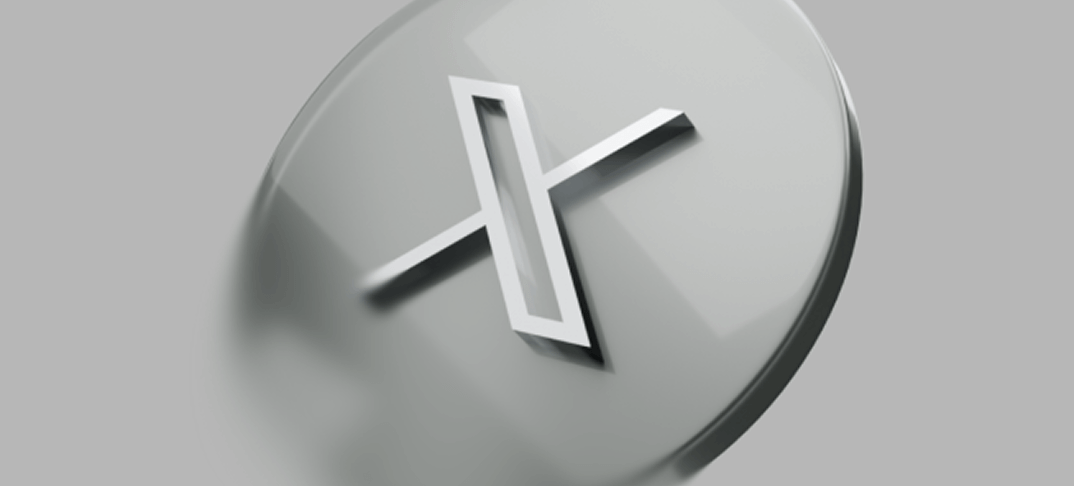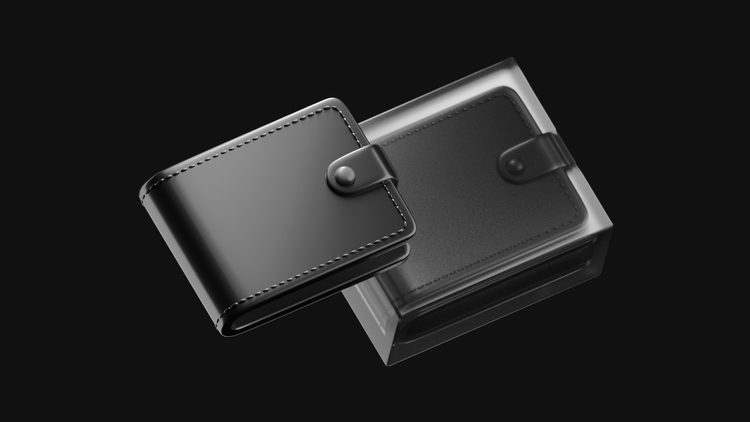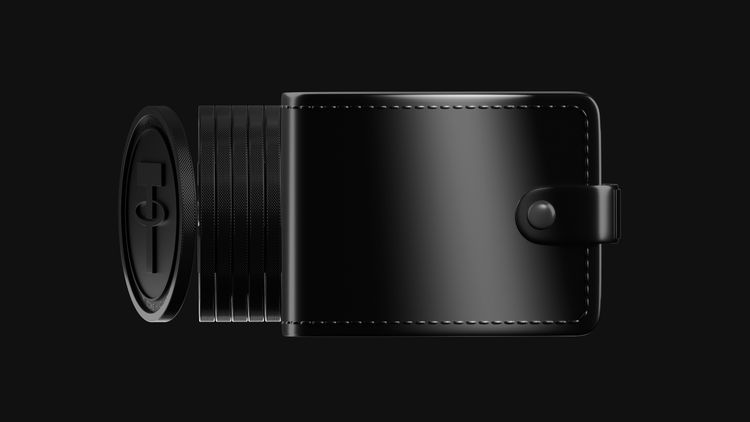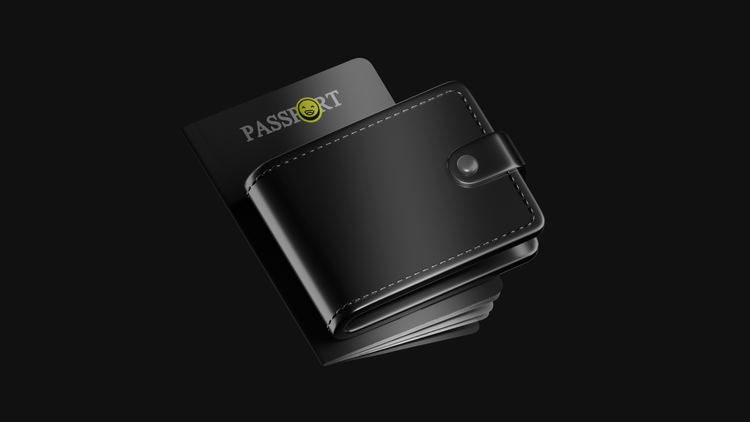Top Crypto Wallets: Types, Features & How to Pick the Right One
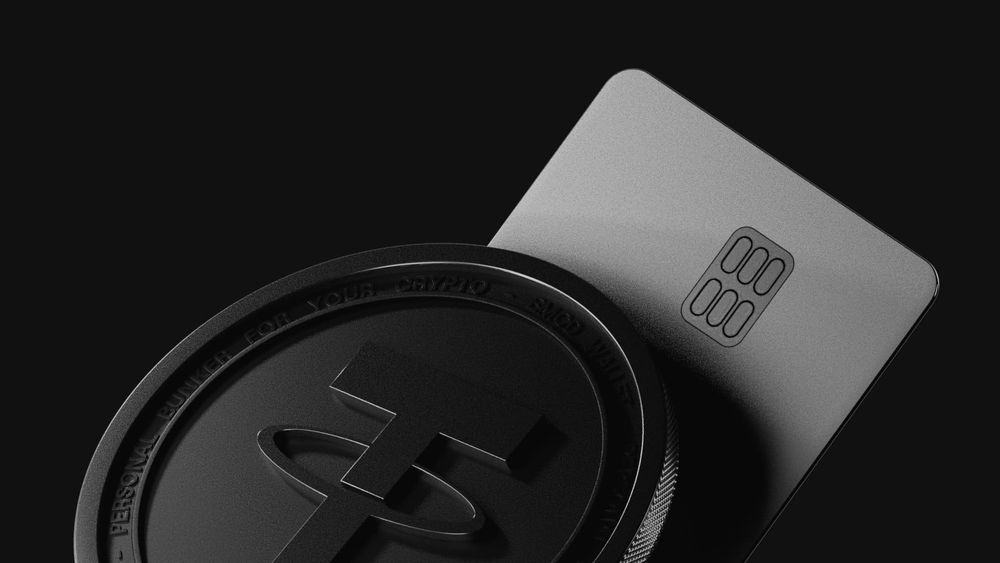
A crypto wallet is a tool for storing and managing your digital assets. There are many different types: some are more convenient to use, while others focus on stronger security.
There’s no single ‘best’ wallet — the right one depends on how you plan to use your crypto. Are you an active trader, holding for the long term, or just starting out? Each case might call for a different solution.
A good crypto wallet should match your goals and habits. It’s an important tool for keeping your assets safe and making sure you can access them when needed.
Let’s go over what a crypto wallet is and how to choose a good crypto wallet that fits your needs.
What’s a Cryptocurrency E-Wallet?
Unlike traditional government-issued money, cryptocurrency has no physical form. It exists purely in digital space, and that’s where crypto wallets come in.
A crypto wallet is an app or software program that lets you store, send, and manage digital assets. Think of it as a virtual vault — similar to a bank account but tailored for the crypto world.

Today, crypto wallets come in all shapes and forms — from mobile apps and web platforms to physical devices you can carry in your pocket.
They generally fall into two main categories: hot wallets and cold wallets.
Hot wallets are always connected to the internet. These include mobile apps and web-based platforms, making them super convenient for quick access and transactions. They’re usually affordable, and many are even completely free to use.
Cold wallets, on the other hand, are physical devices designed to store your crypto completely offline. These can be portable gadgets like USB drives or other external hardware.
Сold wallets are virtually immune to online hacks since they aren’t connected to the internet. However, physical security is key since if the device falls into the wrong hands, your assets could still be at risk.
How to Choose the Right Crypto Wallet: Key Considerations
Choosing the best crypto coin wallet is crucial to safeguarding your digital assets. To make an informed choice, you need to assess multiple factors across the available options. Let's explore the key criteria that should guide your decision to ensure your crypto is in safe hands.
Crypto Wallet Reliability
Your wallet’s reliability isn’t just a feature — it’s the foundation. In the crypto world, you’re not just choosing a storage solution; you’re choosing your personal security guard.
Before committing to a wallet, it’s essential to evaluate the following criteria to ensure you're making a secure choice:
- Wallet type. Hardware wallets are far more secure than mobile wallets. They store your private keys offline, making them less susceptible to online attacks, unlike software-based wallets that are always connected to the internet and can be vulnerable to phishing, malware, and other cyberattack types
- 2FA. If your wallet doesn’t offer two-factor authentication, it’s a major red flag. 2FA adds an extra security layer by requiring a second verification form — usually a code sent to your phone or email — before any transaction can be made. Without it, your funds are much more exposed
- Open-source code. Wallets with open-source code allow the crypto community to inspect, audit, and improve the code security. If developers are transparent about their code, it means they’re confident in its security. On the other hand, closed-source wallets could be hiding vulnerabilities
- History of hacks. One hacking incident might be forgiven, but if the wallet has been breached multiple times, it becomes a pattern. Pay attention to the wallet’s track record, and ensure that it has taken measures to address past security flaws
Crypto Wallet Reputation
In the crypto world, reputation is everything. If your close friend recommends a crypto wallet, but you can’t find any solid information about it online, then it’s a gamble, not a choice. When it comes to securing your assets, you can’t afford to take risks.
Here’s how to properly check the crypto wallet reputation:
- Project age. A wallet that's been around for less than two years can be considered high risk. While there are newer projects with great potential, a long track record helps to ensure that the wallet has stood the test of time and navigated early-stage vulnerabilities
- Reviews. Look for user reviews not only on the wallet’s official site, where all reviews are likely to be positive, but also on independent forums like Reddit and social media platforms. This gives you a more balanced perspective and helps you gauge the true user experience. Be cautious of wallets with no external reviews or a flood of suspiciously positive feedback
- Team transparency. A wallet’s development team should be transparent and ideally publicly identifiable. If the developers are completely anonymous or their identities can’t be verified, it’s a warning sign. You need to know who’s behind the wallet, especially when you’re trusting them with your funds. Look for a team with a reputable background in blockchain or security
- Community and ecosystem support. A good wallet should have a robust community around it. This includes active support channels, regular updates, and participation in discussions about its development. A wallet with little to no community engagement or one that hasn’t had a significant update in months or years could be a sign of stagnation or a lack of interest from its developers
- Audit and security certifications. Top-tier wallets undergo third-party security audits and certifications to ensure they meet industry standards. Check if the wallet has undergone security audits by well-known firms or if it has security certifications to back up its claims

Transaction Fees
When choosing a crypto wallet, transaction fees are a crucial consideration. High fees can quickly reduce your profits, so selecting a wallet that allows you to manage and minimize them is essential.
By considering these features, you can choose a wallet that minimizes transaction fees and maximizes your crypto value:
- Customizable fees. Look for wallets that allow you to adjust fees. This helps you avoid overpaying, especially during times of network congestion, by selecting a fee based on urgency
- Lightning network support. If you use Bitcoin, choose a wallet with Lightning Network support. It offers low-cost, near-instant transfers compared to traditional Bitcoin transactions
- Free internal transfers. Some wallets let you send crypto between users without any fees. This feature can save money if you frequently send funds within the same platform
- Blockchain fee optimization. Different blockchains have varying fees. Opt for wallets that support multiple chains, allowing you to choose the most cost-efficient network for transfers
- Integrated DEX and token swaps. Wallets with built-in decentralized exchanges or token swaps let you trade without paying high exchange fees, offering an efficient and cost-effective way to manage assets

User-Friendliness: A Wallet Should Be Intuitive, Not a Puzzle
The best e-wallets for crypto should have a simple and intuitive interface. If using it feels like solving a complex puzzle, then it’s not a good choice. Every transaction should be easy to execute without confusion. No matter if you're transferring funds or checking your balance.
Key usability factors to consider:
- Transaction speed. Slow transactions can be frustrating. A good wallet should process transfers quickly, ideally in real-time or with minimal delay. A long wait can be especially irritating when you're dealing with volatile markets or urgent transfers
- Multilingual support. If you prefer using a wallet in a language you're comfortable with, it’s essential to check for multilingual options. This feature ensures that the wallet can cater to a global user base and adapt to different language preferences seamlessly
- Cross-platform compatibility. No matter if you use iOS, Android, or Windows, your wallet should work flawlessly across all devices. Ensure that the app is responsive and doesn’t have issues across different operating systems. A seamless experience on any platform ensures convenience, no matter where you access your wallet
Supported Currencies
A wallet should support the cryptocurrencies you want to use. If it doesn't, it's like buying a smartphone that can't make calls, which is completely useless for your needs.
When choosing a crypto wallet, it’s crucial to consider the following factors:
- Cryptocurrency list. Make sure a wallet supports the coins you're planning to use. They can be Bitcoin, Ethereum, or any altcoins. The wallet should allow easy transactions for the coins that matter most to you
- Frequent updates. A good wallet is constantly evolving. It should frequently update to support new coins and tokens. A wallet that hasn’t added anything new since 2017 is likely falling behind and may limit your options
- Support for ERC-20 and BEP-20 tokens. If you’re involved in DeFi, the wallet must support popular token standards like ERC-20 and BEP-20. Without this support, you'll miss out on interacting with DeFi projects and managing tokens across different ecosystems

Crypto Wallet Integrations: Keep Everything in One Place
A good wallet for crypto should seamlessly connect with exchanges, DeFi protocols, and NFT marketplaces, saving you time and effort.
What to look for:
- WalletConnect support. It allows you to easily connect to decentralized apps — dApps
- Built-in exchange. This feature lets you swap crypto without having to send it to an exchange
- Trading API. It’s essential for active traders, enabling direct interactions with exchanges
Top Cryptocurrency E-Wallets
Keeping your assets secure is non-negotiable. That’s where cryptocurrency e-wallets come in. From sleek mobile apps to military-grade hardware, these devices are designed to protect your coins while giving you full control.
In this guide, we’ll break down the best crypto wallets in the world and what makes each one stand out.
Trust Wallet
If you’re looking for a secure and seamless way to manage your crypto on the go, this crypto wallet has you covered.
Pay attention to its key features:
- It’s fully integrated with all Binance services, giving you exchange-level power right from your phone
- Designed as a mobile app that’s super user-friendly. No sign-ups, no KYC — just download and go
- You can trade on the fly, monitor live charts, track market moves, and even collect NFTs all in one place
- There is an option to buy crypto directly with your bank card
- It’s built with a strong focus on privacy and security, so your assets stay protected
MetaMask
MetaMask unlocks the full potential of Ethereum, packed with features designed for both beginners and pros:
- A slick browser extension wallet made for Ethereum and ERC-20 tokens, which is perfect for interacting with the Ethereum ecosystem
- Trusted by over 1 million users worldwide and growing fast
- Seamlessly connects with hardware wallets and DApps, making it a go-to for DeFi fans
- Lets you interact directly with smart contracts, opening the door to everything from NFTs to yield farming
- If you lost access, you can easily restore your wallet with a seed phrase
EMCD Wallet
EMCD is a full-fledged ecosystem of crypto products designed to help you earn and mine cryptocurrency on the most advantageous terms. No matter if you’re a seasoned miner or just exploring the digital asset world, the EMCD Wallet brings powerful tools and trusted functionality right to your fingertips.
The EMCD wallet is simple, secure, and built for your crypto lifestyle, and here’s why it stands out:
- It’s reliable and private, and only you have access to your funds, ensuring full control and peace of mind
- Multi-currency support for Bitcoin and other major cryptocurrencies, making it perfect for storing, sending, and receiving assets with ease
- It comes with seamless integration to the EMCD mining platform — view payouts, profits, and balances right from the app
- There is a zero-fee withdrawal option. You can move your funds to external wallets without paying a cent
- It allows instant crypto purchases via bank cards, with minimal hassle
- The EMCD wallet comes with a built-in exchange. You can swap between 62 crypto pairs at favorable rates directly within the wallet
- It offers multi-layered security protocols, ensuring your funds remain safe and fully under your control
- Available as a user-friendly mobile app for Android and iOS
Ledger Nano X
If top-tier security and mobility matter to you, Ledger Nano X is a vault that fits in your hand.
Why it’s a powerhouse in your pocket:
- A hardware multi-currency wallet from Ledger has a trusted name in crypto security since 2014
- Compact and sleek, it uses Bluetooth to store your private keys securely, and there is no need for constant cables
- Supports a wide range of cryptocurrencies from a single device so that you can manage your portfolio with ease
- Full control via smartphone, or plug it into your PC via USB for added flexibility
- Physical buttons and a mini-display give you real-time info and secure transaction confirmation
- Runs on Ledger’s custom BOLOS OS and is equipped with a CC EAL5+ certified secure chip — enterprise-grade protection for your crypto
Ledger Nano S
If you’re looking for proven reliability and security without the bells and whistles, the Ledger Nano S is a battle-tested choice.
Let’s take a closer look at the features that make this wallet a reliable favorite:
- This hardware wallet supports a wide range of cryptographic algorithms and delivers rock-solid protection
- There is no need to juggle wallets since you can store multiple cryptocurrencies on a single device
- Equipped with two secure chips — ST31H320 and STM32F04 — to keep your encrypted data safe
- If you lost your device, the built-in recovery mechanism lets you restore access and safeguard your assets
- Boasts a CC EAL5+ security certification, just one notch below military-grade EAL6+
Blockchain.com
With its long-standing reputation and user-friendly features, Blockchain.com is a solid pick for anyone stepping into the crypto world.
Discover the key features that make it a must-have in your crypto toolkit:
- One of the most popular crypto platforms, trusted since 2011
- Available in 200+ countries, making it a truly worldwide solution
- Buy crypto easily using your bank card
- Offers crypto trading with fiat support, including USD, EUR, GBP, and TRY. It’s ideal for beginners and seasoned traders alike
- Use it on the go with a mobile app for Android or iOS, or access it directly through the web version
Comparing the Best E-Wallets
In the crypto world, your wallet is more than just an app — it's your personal bank, trading terminal, and vault all in one. As more people move away from traditional finance, choosing the right wallet becomes more crucial than ever. It needs to be not only user-friendly but also secure, flexible, and capable of growing with your crypto portfolio.
To simplify the decision, we’ve gathered six popular options and compared them across key features. Each of these wallets stands out in its own right, no matter if you’re looking for a mobile app or a hardware device. Let’s break down what makes each one a solid choice:
| Wallet | Key Features | Best For |
| Trust Wallet | Fully integrated with Binance Mobile app No sign-ups or KYC Buying crypto with a bank card Strong privacy and security | Easy mobile use Binance integration |
| MetaMask | Ethereum-focusedcTrusted by over 1 million users Integrates with hardware wallets Supports DeFi and smart contracts | Ethereum and DeFi users |
| EMCD Wallet | Multi-currency support Zero-fee withdrawals Integrated with the EMCD mining platform 62 crypto pairs exchange High security | Miners and multi-currency traders |
| Ledger Nano X | Hardware wallet Bluetooth-enabled Wide cryptocurrency support Full control via smartphone or PC CC EAL5+ certified | High security and mobility |
| Ledger Nano S | Hardware wallet Supports multiple digital coins Recovery mechanism CC EAL5+ security certification | Reliable security with fewer features |
| Blockchain.com | Trusted since 2011 200+ countries Buying crypto with a bank card Crypto trading with fiat support Mobile app and web | Beginners and global traders |
- Effortless convenience. With an electronic wallet, everything you need is always in your pocket. No more plugging in USB devices every time you want to make a transaction. No extra hardware. With an e-wallet, you can buy, send, and manage your crypto assets on the fly without extra steps. It’s as seamless as online banking, but for crypto
- Easy access. Many crypto wallets are completely free to download and use. All it takes is a few minutes: install the app or browser extension, set up a new wallet or import an existing one using your seed phrase, and you’re ready. No paperwork, no KYC, no fuss
- DeFi-ready. Most modern e-wallets support direct integration with DeFi platforms. You can connect to DEXs, liquidity pools, and lending protocols using WalletConnect or a browser plugin and start interacting with smart contracts in just a few taps
- Cross-platform flexibility. Many e-wallets support use across multiple devices — phone, tablet, or desktop — giving you full control from wherever you are. Some wallets even offer browser extensions and mobile apps that sync seamlessly
- Built-in features for active users. From real-time price tracking and portfolio management to in-app swaps and NFT storage, most wallets now come loaded with tools that go way beyond simple storage
- Not ideal for high-stakes investors. If you plan to store large crypto sums, hot wallets might not be the safest bet. Their online nature makes them more vulnerable compared to hardware solutions
- Vulnerability to cyber threats. Hot wallets are connected to the internet, which opens the door to various attack vectors — from malware to phishing schemes. One wrong click could compromise your wallet, especially if your device isn’t properly secured
- Fake wallet apps are everywhere. The crypto space isn’t short on scammers. There are plenty of counterfeit crypto wallet apps disguised as the real deal. Downloading one by mistake could cost you your entire balance. Always double-check the developer and verify from the official website before downloading
- Responsibility falls entirely on you. There’s no ‘forgot password’ button in crypto. If you lose your seed phrase, there’s no way to recover your wallet. While this gives you full control over your funds, it also means there's no safety net, and even one mistake can be permanent
- Limited customer support. Most wallet services offer minimal support. If you encounter a bug or make a transaction error, help is often hard to find. You’re essentially your own bank, which is both empowering and risky
Choosing the right crypto wallet boils down to your needs. If you’re a casual user who values simplicity and Binance integration, Trust Wallet is a great choice. MetaMask is unbeatable for Ethereum-focused trading and DeFi interactions. If you're a miner, EMCD Wallet offers seamless integration with mining platforms and crypto exchange options without any fees.
For those who prioritize top-tier security, Ledger Nano X and Ledger Nano S provide enterprise-level protection and full control over your assets. Lastly, Blockchain.com remains a go-to for beginners, offering ease of use, global access, and the ability to trade with fiat currencies.

Whichever wallet you choose, make sure it fits your goals, offers the security you need, and grows with you as the crypto landscape evolves.
Crypto Wallets: The Perks and Pitfalls You Need to Know
Your digital wallet is the launchpad for all things crypto: DeFi, NFTs, staking, and beyond. But as with any digital tool, there are trade-offs you should know before jumping in. So, let’s break it down. Here are the real-world pros and cons of using cryptocurrency e-wallets.
Advantages:
Disadvantages:

Final Thoughts: Which E-Wallet Should You Choose?
In today’s digital world, the right e-wallet is a key to navigating crypto with confidence. Wallets come in many forms — some built for maximum protection, others for speed and convenience, giving you the flexibility to choose what suits you most.
What really sets today’s best wallets apart is how well they adapt to your different needs, whether it's long-term storage, frequent trading, or accessing decentralized apps. While cold wallets appeal to those who prioritize security above all, hot wallets continue to evolve, offering increasing protection levels without sacrificing speed and flexibility. Custodial wallets, often favored by beginners for their simplicity, contrast sharply with non-custodial ones that demand more responsibility but provide full control.
Ultimately, it’s your habits, goals, and risk tolerance that define the best fit. More than just storage, a wallet is a core part of how you interact with and manage your digital assets.

FAQ
What is the difference between a hot wallet and a cold wallet?
A hot wallet is internet-connected, allowing instant access, but is more vulnerable to cyber threats. A cold wallet is offline, offering stronger security but less convenience for frequent use.
Are cryptocurrency e-wallets safe to use?
Cryptocurrency e-wallets are generally safe when used correctly. Security depends on the wallet type, how it's stored, and user practices like enabling 2FA and safeguarding private keys.
Can I store any cryptocurrency in an e-wallet?
Not all e-wallets support every cryptocurrency. Each wallet is compatible with specific coins or blockchains, so you need to choose one that supports the assets you hold.
What happens if I lose access to my e-wallet?
If you lose access to your e-wallet and don’t have a recovery phrase or private key, your crypto is likely gone forever — there’s no password reset in blockchain.
Do e-wallets charge fees for transactions?
Yes, e-wallets may charge transaction fees, which can vary depending on the wallet type and the network used. Some wallets have fixed fees, while others rely on blockchain network fees, which fluctuate.
Is it better to use a hardware wallet or a software wallet?
It depends on your needs. A hardware wallet offers superior security by storing keys offline, making it ideal for long-term storage. A software wallet is more convenient for frequent use but is more exposed to online risks.
Can I use multiple e-wallets at the same time?
Yes, you can use multiple e-wallets at the same time. Many users use different wallets for different purposes, like one for daily transactions and another for long-term storage, while keeping their assets organized and secure.
How do I recover my funds if my wallet gets hacked?
If your wallet gets hacked, recovery depends on having your recovery phrase or private key. Without these, it’s impossible to recover funds, as there’s no central authority to assist. Always keep backups in secure locations.
Are e-wallets anonymous?
E-wallets offer a privacy level, but they aren’t entirely anonymous. Transactions can be traced on the blockchain, and some wallets require personal identification for specific actions, especially on regulated platforms.
Which e-wallet is best for beginners?
The EMCD Wallet is an excellent option for beginners. It supports over 20 cryptocurrencies and includes features like fee-free withdrawals for certain coins and a savings account that offers up to 14% annual interest. With its slick interface and strong security, it’s ideal for newcomers, while also providing advanced features such as P2P trading and mining integration.
Can I use the same wallet on my phone and computer?
Yes, many e-wallets offer multi-device support, allowing you to use the same wallet on your phone and computer. Just ensure your wallet is synced across devices for seamless access.







